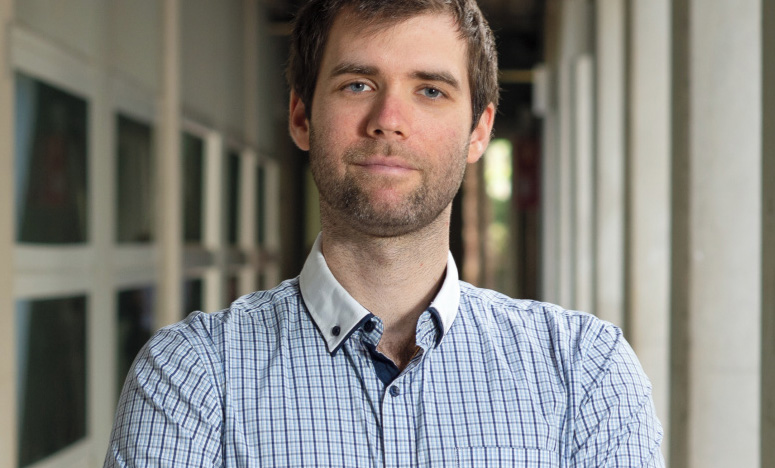Just 50-60 per cent of patients with post-traumatic stress disorder recover with current treatment and of those 30 per cent relapse, a fact that QUT postdoctoral psychology researcher Dr Luke Ney intends to change with a five-year study funded by a $665,150 NHMRC Investigator grant.

- Up to 50 per cent of people treated for PTSD do not recover
- Most treatment based on a paradigm unchanged for decades
- Five-year study will validate experimental paradigm and pharmaceutical targets to enable more effective treatment.
Dr Ney said PTSD was a highly debilitating disorder that resulted in extremely substantial economic burden and levels of partial disability, rivalling other major psychiatric conditions including depression and schizophrenia.
"Most psychological treatments for PTSD are based on experimental 'fear extinction' studies and it is not known whether they sufficiently correspond to PTSD mechanisms and symptoms in real-world PTSD patients," Dr Ney said.
"Fear extinction studies are currently used for the identification of the neurobiological targets – for example, stress hormones – that might be suitable for pharmaceutical therapy for PTSD and clinical human trials.
"This study relies heavily on the presumption that fear extinction paradigms are relevant to treating PTSD patients.

"Although we have seen an exponential rise in fear extinction studies – 300 in 2015 – it has not resulted in any substantial change to its clinical corollary 'exposure therapy'.
"Exposure therapy aims to extinguish PTSD fear and anxiety by having the patient revisit the traumatic event to gradually become desensitised to it.
"Because, as yet, we have no rigorously validated experimental paradigm for PTSD, my research is concerned with developing experimental methods that will allow us to accurately identify and treat the memory processes underlying trauma-related behaviours occurring in PTSD.
"My program will likely be the first in the 100-year history of the fear extinction paradigm to systematically and rigorously validate, and redefine this experiment, leading to significantly improved capacity for researchers to improve upon current interventions for these common yet impactful disorders."
Dr Ney's research program, Fear extinction as an experimental model for PTSD treatments and course, will include at least one PhD student and multiple honour- or masters- level students and a research assistant.






